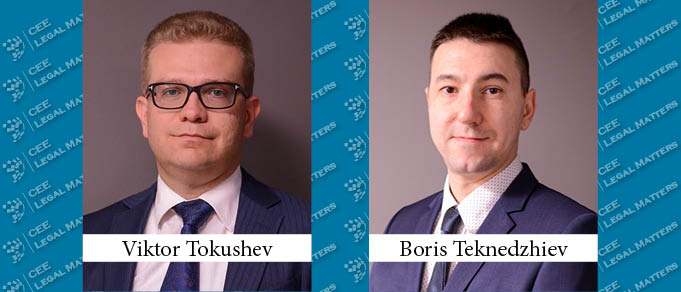The year 2021 effectively brought back the Bulgarian capital market into the spotlight of public interest. Seven IPOs were listed on the Bulgarian Stock Exchange (BSE), raising a total of EUR 12 million, which is the highest number of offerings in 15 years, going back to the period before the 2008 financial crisis. There is only one reason for this development: the rise of the SME Growth Market – beam – where all said IPOs have taken place.
By its nature, beam is not a regulated market, but a multilateral trading system, which is organized by the BSE, the regulated market operator. Its main purpose is to provide opportunities to small and medium businesses for acquiring investments that are alternative to bank financing and under lighter conditions, compared to the regulated market.
There are three essential characteristics of the beam market in comparison to the regulated market, which allures more interest from the companies:
First and foremost, in order to raise funds on the beam market, there is no requirement for prospectus approval by the Financial Supervision Commission (FSC), the Bulgarian regulator of capital markets.
Second, the companies allowed on beam do not become public companies (to which are applied numerous law regulations) but are rather subject to a much lighter regulatory framework as per the BSE’s market rules.
Third, companies allowed on beam are primarily those that cover the requirements for SMEs.
Undoubtedly, the highlight is the first of these characteristics because two of the companies that have successfully raised funds through beam IPOs – Biodit and Smart Organic – have had previous refusals by the FSC to approve their prospectuses. Despite these refusals, the IPOs of these companies were successful as the full amount of the financing was raised. We see this as a clear indication that investors don’t need the FSC’s overprotection.
Concerning the requirements for companies admitted to the beam market, it should be noted that these companies should publish only their annual and six-month financial statements. Furthermore, the requirements for transactions above a certain threshold or with affiliated parties to be approved in advance by the general meeting of shareholders do not apply, nor is the obligation for tender offering in case of a shareholder increasing his/her company share applicable. Nevertheless, companies are expected to comply with all requirements against market abuse.
The new significant development in the beam market that happened in 2022 is that the maximum amount of sought financing through an IPO was increased from EUR 3 million to EUR 8 million, the latter being the absolute maximum under the applicable EU regulation. This is an important amendment because it provides the option for already developed companies, which may have been discouraged until now by the lower maximum amount for sought financing on the growth market, to place an IPO. Since most Bulgarian companies are medium-sized enterprises at best, beam is now converted into a very attractive opportunity for practically any company that has not already acquired public status.
To summarize, for a company to be allowed on the beam market, it first needs to be a joint-stock company, regardless of how long it has existed, meaning there is no requirement concerning the company’s history. Second, it needs to draft a document for the offering, which is simplified in comparison to the prospectus, and the company needs to choose an investment intermediary that will carry out the offering itself. Third, there should be a contract in place with an advisor that will support the process of acquiring approval for the beam and the first two years on the market. Such advisors can be investment intermediaries as well as law firms, accountants, or financial consultants, being subject to a preliminary assessment by the BSE and should obtain the respective approval in this regard.
By Viktor Tokushev, Managing Partner, and Boris Teknedzhiev, Partner, Tokushev and Partners
This Article was originally published in Issue 9.8 of the CEE Legal Matters Magazine. If you would like to receive a hard copy of the magazine, you can subscribe here.















